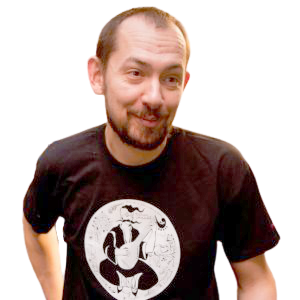The words of nation leaders and heads of state have immense power: they shape a country’s policy and ideology, they can either silence the guns or make Tu-160 strategic bombers take off, they unite or divide the nations.
On December 16, 2010, Vladimir Putin, Russian Prime Minister at the time, while answering the question of his buddy biker Alexander Zaldostanov, said that Russia would have won the Great Patriotic War, even had Ukraine not been part of the Soviet Union. "We would have won either way, because we are the country of winners," Putin said.
That very moment, for the first time ever, Russia put into question the issue of "victory one for all." Less than six years on, the Russians already believe sincerely that it was only their grandfathers who fought Nazism at any cost (some “patriots” even saying they are “ready to repeat”), but six years ago, this statement shocked the Ukrainians. This topic was on top agenda at various panel shows while bloggers posted whole lists of their relatives who had taken part in liberating the Soviet Union, and the whole Europe, from Nazi Germany, ironically noting: "it appears, they could do without you."
It was then that the separation of Victory began and a start was given to debunking the myth about "fraternal nations." As a result, Ukraine and Russia today are in fact in a state of war, even though the diplomatic language calls it a "lack of dialogue at an appropriate level" between the leaders of the two countries. At least that's how the Kremlin explains why the presidents of Ukraine and Georgia have not received from Vladimir Putin the greetings on the eve of May 9 in contrast to the other leaders of the CIS countries: we congratulate the Ukrainian and Georgian nations, not presidents. However, these presidents, both in Ukraine and Georgia, have not just landed there from the moon, or even been appointed by the U.S. State Department. They were chosen by their citizens in democratic elections. So, the Russian leadership claims it is OK with the citizens, but not so much with their choice.
It is no wonder that the monument to the hero city of Kyiv on the Red Square near the Kremlin was left without flowers for the 71st anniversary of the Victory. Now Russian propaganda presents the Victory Day's events in Ukraine solely as an attempt of "nationalists in power" to erase the memory of the Great Patriotic War. In this situation, they chose not to show the Ukrainian president, who kneeled at the Tomb of the Unknown Soldier in Kyiv. Victory Day was celebrated in all cities across Ukraine, including directly at the contact line in Donbas. However, the Russian news only showed some hooligans tearing down the so-called "St. George Ribbons," largely shifting the focus of the Russian viewers. And no one seems to care that these ribbons have also become a symbol of Russia's aggression and occupation of the Ukrainian Crimea and Donbas.
"Fighting fascism" in general is a very easy message aimed at manipulating the minds: the ribbons being torn down – this means they’re against our victory, so they’re the Nazis, and that’s why they’re at war with us, so the seizure of their territory can be considered "fair" and even "necessary." That is the simple logic of Russian propaganda.
Today’s Ukrainians, who have taken up arms to defend their country, have been labeled “Banderites." At the same time, the majority of Russians knows nothing about those terrible "Banderites" and choose not to learn anything whatsoever. It might be easy to go around shouting about the Nazis, but then why Stepan Bandera spent almost the entire war in a German concentration camp, while the resistance of the UPA [Ukrainian Insurgent Army] fighters continued for another decade after the defeat of Germany. Such questions are too complicated.
At a May 9 parade, Putin said: "Our soldiers and commanders have proven that they are worthy successors to the heroes of the Great Patriotic War and protect the interests of Russia with honor."
Protect where? In Crimea? In Donbas? In Syria?
Now a Ukrainian in Moscow can be addressed with something like "what do you guys have to do with our victory?" It turns out, despite our grandfathers having fought together, it was the Russians who "bore the main burden on their shoulders in the fight against the Nazis" – this is a Russian government policy, a policy of a "winner nation,” which has appointed itself chief curator of the Great Victory. It has been almost 80 years since the beginning of World War II. Both the Nazi Germany and the Soviet Union disappeared from the political map. But there is an independent Ukraine. So who is the winner?
Roman Tsymbaliuk, Moscow


